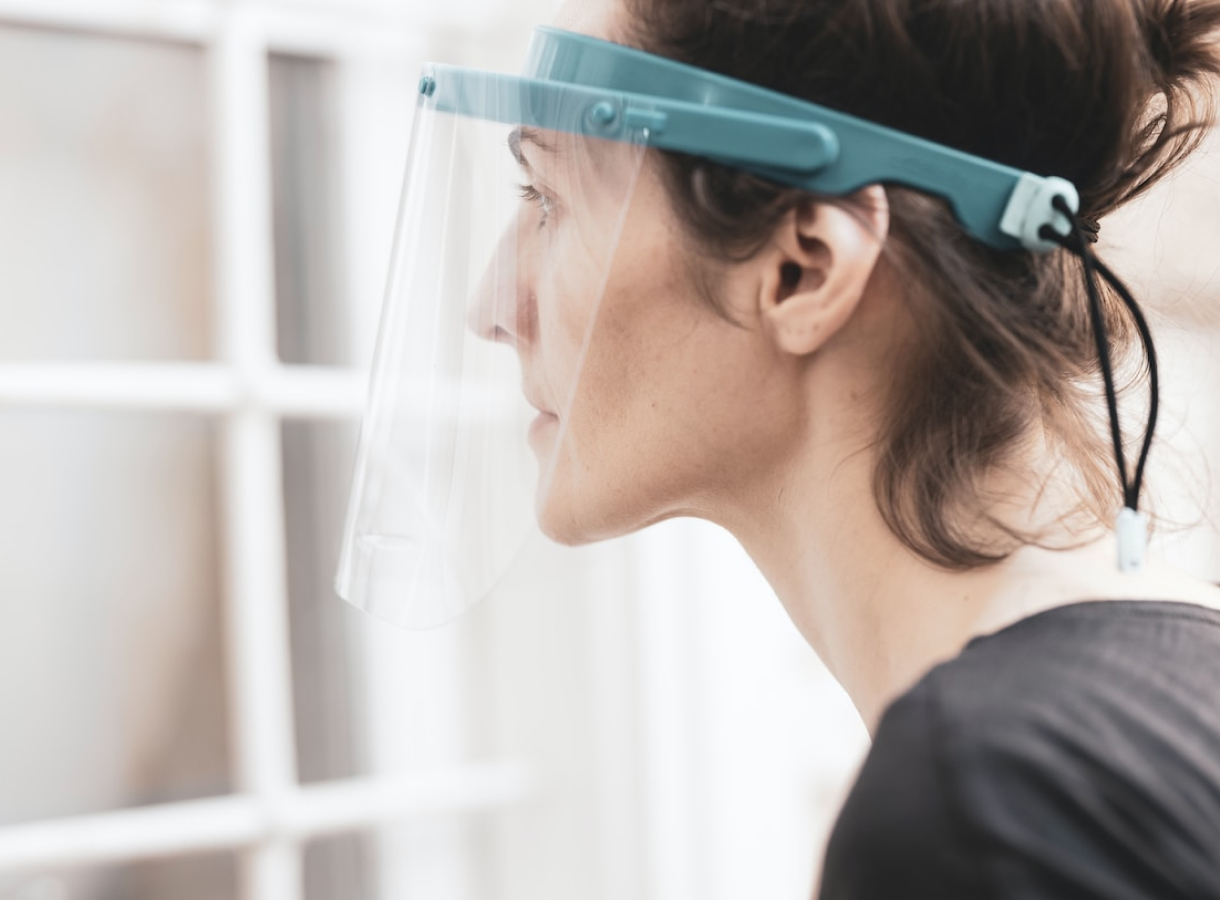Income Protection Insurance for Self-Employed People.
Safeguard your income as a self-employed professional with Pure Cover’s Income Protection Insurance.

What is income protection for self-employed?
Imagine an insurance policy that steps in when life throws an unexpected curveball, like an injury, illness or unemployment. That’s income protection insurance. It’s there to catch you when you fall, replacing a portion of your pre-tax earnings (typically between 50% to 65%) up to a certain limit.
Get a quote

Is Income Protection Insurance for You?
Are you self-employed, a freelancer, or a business owner who doesn’t have the luxury of statutory sick pay or unemployment insurance? Income protection insurance could be your safeguard, providing a financial safety net in case of illness, job loss, or disability.
View more
Get a quote now!
Secure your financial stability as a self-employed individual with Pure Cover’s Income Protection Insurance. When life’s uncertainties strike, protect your income and ensure your loved ones are shielded from financial hardships.
How is it different from critical illness insurance?
Critical illness cover can usually only be bought in conjunction with a regular life insurance policy and will pay out in a lump sum typically as a percentage of the value of your life insurance policy payout. This extra money can be very useful when an accident or critical illness strikes, but a critical illness policy won’t keep paying out each month to support you in the same way that an income protection policy will.
Frequently asked questions
WANT TO GET INSURED?
Get a quote now!
Protect your self-employed income with Pure Cover’s Income Protection Insurance – your safety net against the unexpected. Act now to secure what matters most.
Getting income protection insurance if you work for yourself
You’ve taken the brave leap into self-employment – and with that comes the need to safeguard your income against life’s unpredictable twists and turns. Enter Income Protection Insurance, your reliable partner ready to step in, replacing part or all of your regular income if an accident, injury, illness or unemployment ever keeps you from working.
Whether you’re a solo entrepreneur, freelancer or small business owner, income protection for the self-employed offers you a financial safety net when you need it most. It’s your own personal financial bodyguard, stepping in to replace lost income from unexpected events and helping you keep bills at bay without needing to dip into credit. With income protection, you gain peace of mind knowing you’re covered.
If you are self-employed, then income protection insurance is definitely worth considering. As you won’t get the financial windfall of sick pay from work, unless you have sufficient savings to support you and your family then being unable to work for a long period could have a serious impact on your life.
The income protection cover is designed to help you keep paying the bills, and any debts you have such as a mortgage payment, if you are unable to work due to illness or injury. We’ll take you through everything you need to know to help you decide if it’s right for you.
What is income protection for self-employed?
Imagine an insurance policy that steps in when life throws an unexpected curveball, like an injury, illness or unemployment. That’s income protection insurance. It’s there to catch you when you fall, replacing a portion of your pre-tax earnings (typically between 50% to 65%) up to a certain limit.
This knight in shining armour pays out a monthly benefit for a set period of time (1-5 years, or until retirement age) or until you’re back on your workhorse – healthy and earning again.
Your Safety Net as a Self-Employed
If you’re self-employed, income protection insurance becomes especially crucial. It’s like an invisible safety net, providing a monthly payment to cushion the blow if long-term sickness or injury knocks you off your game. Rest assured, this lifesaver is regulated by the Financial Conduct Authority (FCA) and the Prudential Regulation Authority (PRA).
These protection plans are like a peace treaty for your mind. They ensure that even if illness or injury strikes, your finances won’t be another battle to fight. With a payout of up to 65% of your normal earnings, they’re designed to keep you or your family afloat during tough times.
You can get income protection insurance from a life insurance provider. But remember, not all nets are created equal. Do your homework and explore all the options, as different providers offer different terms and features. Think hard about what cover you need, how long you want the insurance to last and how much premium you’re willing to pay.
Whether you’re looking to safeguard your mortgage repayments or just want to cover basic living expenses, income protection should be a key player in your financial game plan. The best way to find a policy that fits your needs is to compare options. It’s like shopping for a parachute – you want to make sure it will support you when you need it most.
Is Income Protection Insurance for You?
Are you self-employed, a freelancer, or a business owner who doesn’t have the luxury of statutory sick pay or unemployment insurance? Income protection insurance could be your safeguard, providing a financial safety net in case of illness, job loss, or disability.
If your income is your sole lifeline and there’s no one else to depend on for financial security, this policy can offer peace of mind.
Exploring the Different Income Protection Insurance Options
Income Protection insurance offers a smorgasbord of options. Choose from monthly benefit payments covering a specific percentage of your gross income or fixed-sum monthly payments. Other perks and features include critical illness cover or executive income protection policies. Tailor the waiting period (usually between 30-90 days) and choose the retirement age when your policy ends, typically at 65 or 70.
How Does Income Protection for the Self-Employed Secure Your Finances?
The main goal of income protection insurance is to shield you from financial stress due to lost income from injuries, accidents, illness, or job loss.
It can cover your daily expenses like mortgage payments and bills, and even other financial obligations like rent arrears or loans.
Additionally, it can offer extra financial protection with critical illness cover, paying out a lump sum if you’re diagnosed with a specified illness or injury.
How does it work?
Just like with a life insurance policy , you pay monthly premiums while you are fit and healthy to guarantee your cover, but the payments the policy will make for a successful claim are based on a percentage of your salary. An income protection policy also pays out in monthly income instalments rather than as a lump sum, unlike a standard life insurance policy.
So, what should be on your radar?
When venturing into the realm of self-employed income protection insurance, two pivotal aspects demand your attention before securing a policy.
- Firstly, understand the payout of the policy. Typically, an income protection policy offers a tax-free income of around 50% of your gross monthly earnings. However, there’s usually a cap on the maximum monthly or annual benefit. So, a policy might give you 50% of your gross income but only up to a limit of £2,000 a month or £24,000 a year.
- Secondly, check the policy’s duration. You’ll find policies that cover you indefinitely until you can return to work or retire. Others provide income for a set period (usually 12 or 24 months).
Your golden goal? A policy that pays enough each month to cover bills and necessary payments while you’re unable to work.
How much does income protection insurance cost?
There are a variety of factors that affect the premiums of an income protection policy. Exact rates will depend on your situation and the provider you choose.
All these factors will influence the cost of your monthly premiums:
- Percentage of your income that is covered. Some policies can cover a larger portion of your income, up to around 70%, in exchange for higher premiums.
- What you’re covered for. It is possible that a policy will increase in price if you want both sickness pay and accident cover.
- Age. As with life insurance, income protection insurance for the self-employed gets more expensive the older you get. This is because older people are at an increased risk of falling ill and being unable to work.
- Occupation. Being a self-employed person can mean being involved in a wide range of industries. If what you do is more risky to your health, you will likely find your policy is more expensive.
- Medical history. When taking out self-employed income protection insurance you will be asked to complete a medical questionnaire. If you have a history of health problems that have kept you off work, or if you smoke, it will have an effect on your premiums.
- How soon do your payments start? Income protection policies have a set period of time before they start paying out, usually ranging from 1-3 months. If you opt for a longer wait, then your premiums will be lower.
The Role of the Financial Conduct Authority
For self-employed folks in the UK, income protection insurance is a crucial safeguard. It’s a lifeline during illness, injury, or even the unthinkable, providing a financial safety net. This form of life insurance is under the watchful eyes of the Financial Conduct Authority (FCA), ensuring you and your insurer meet your respective responsibilities.
Tailoring Your Income Protection Cover
A trusted representative from your insurance company will guide you through your policy. They’ll help you understand the coverage, how much you need, and any additional benefits you can access. Your policy can shoulder costs like household bills and mortgage payments, and even provide optional benefits like national insurance.
Income protection insurance offers a financial lifeline when you need it most. It replaces lost income and provides a safety net should you be unable to work due to illness or injury.
If you ever face issues with your income protection insurance, the Financial Ombudsman Service (FOS) is your ally. They offer a free, impartial service to resolve complaints between consumers and financial services providers. They’ll hear both sides of the story, assess if you have a valid complaint and work towards a resolution. If necessary, they can escalate the issue to the Financial Services Authority (FSA).
What other forms of insurance should I consider?
In terms of a policy that’s going to protect you in order to help pay the bills if you have to take time off work due to illness, income protection insurance for the self-employed is hard to beat. There are a few other policies that you might want to consider:
- Life insurance with critical illness cover. Getting a life insurance policy will guarantee your family a large payment if the worst were to happen, as long as offering the security of a lump sum if you get diagnosed with a serious illness during the term of the policy. It can be just as important for protecting your family as income insurance.
- Payment protection insurance. This is a type of policy designed to cover selected sick pay payments, such as a mortgage, if you are unable to work through illness or injury.
Redundancy insurance. Although these policies are usually aimed at people who are employed by someone other than themselves, they often can be used by self employed people in a similar way to income protection insurance. Check out our page on the subject for more information on sickness insurance.
Related Insurance
Explore the array of insurance options with Pure Cover, designed to safeguard every aspect of your life. From health to life, we’ve got you covered.